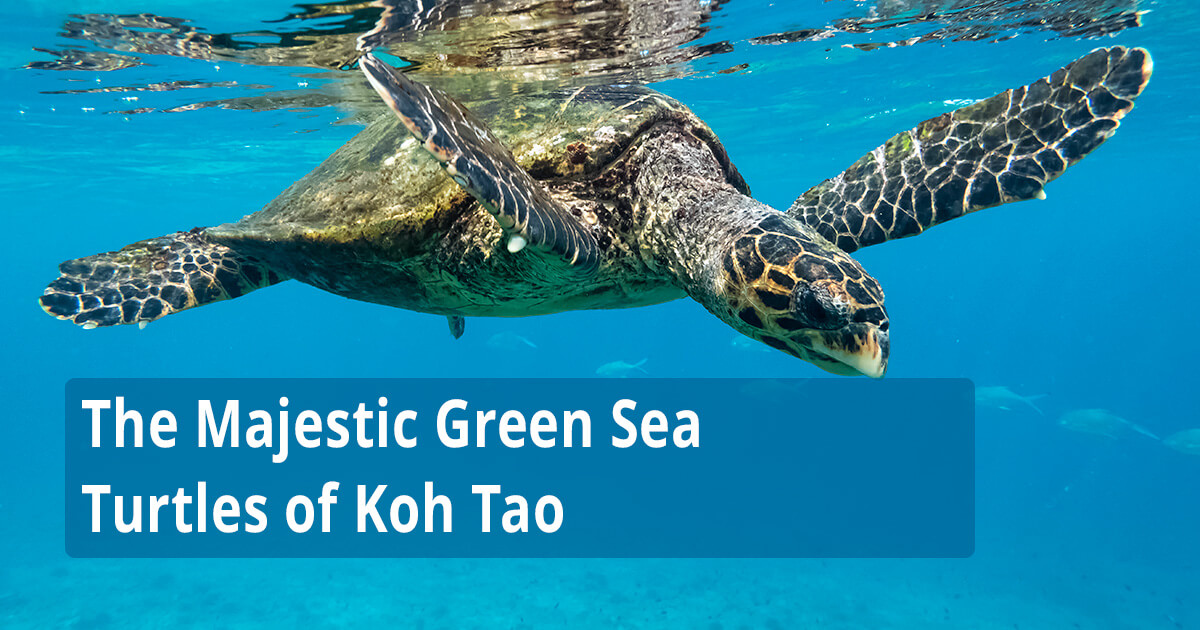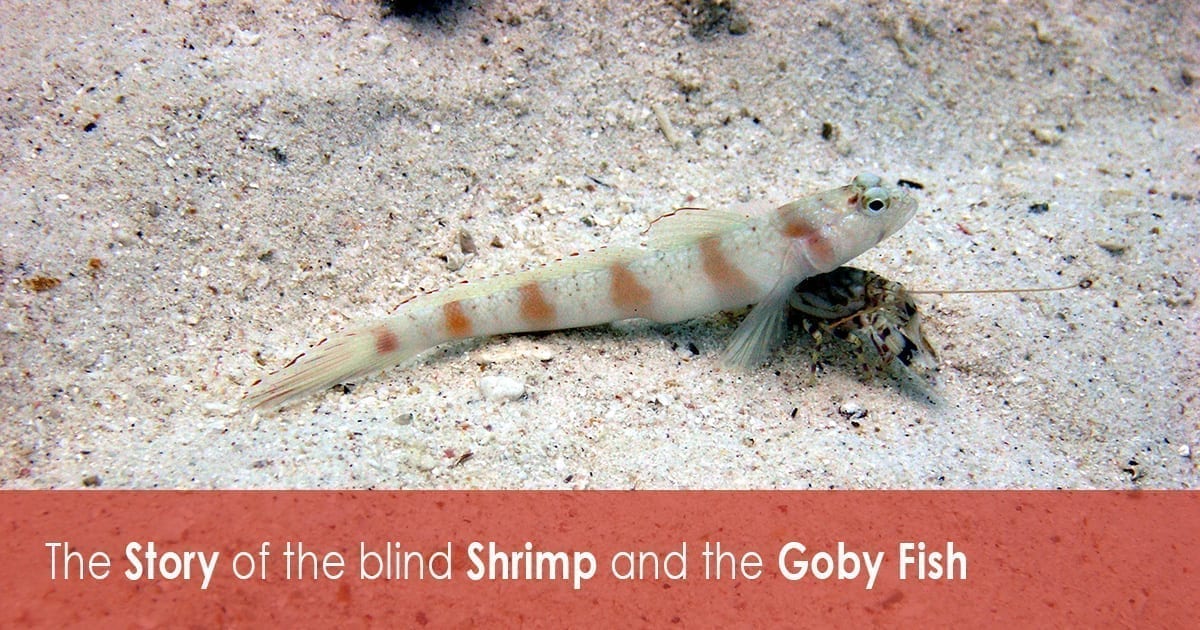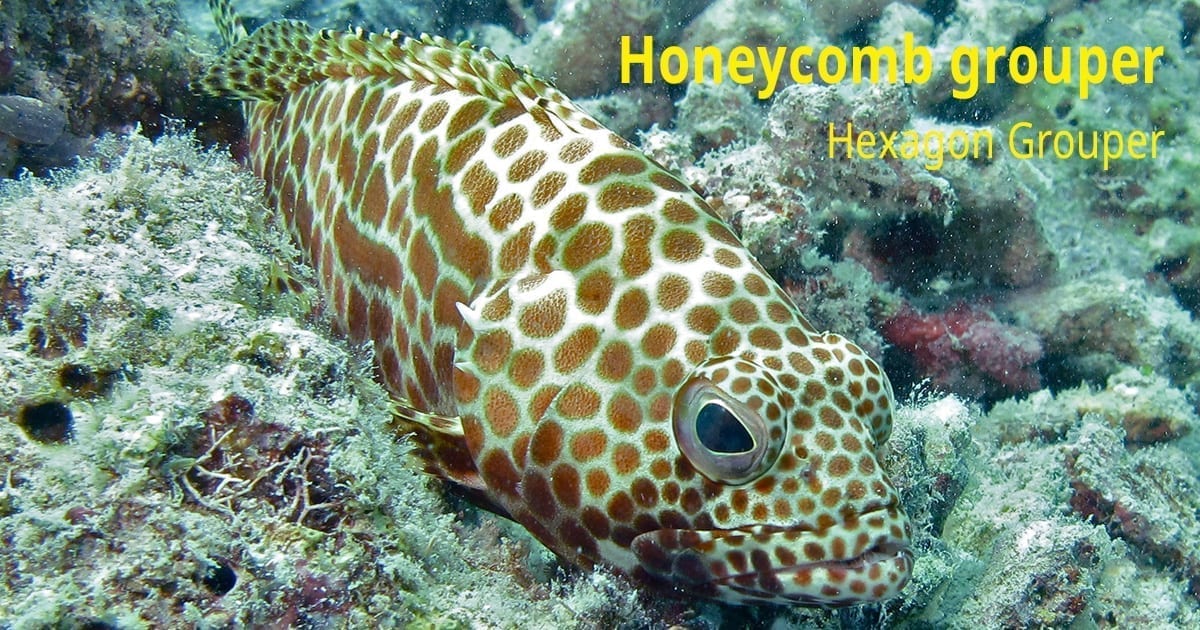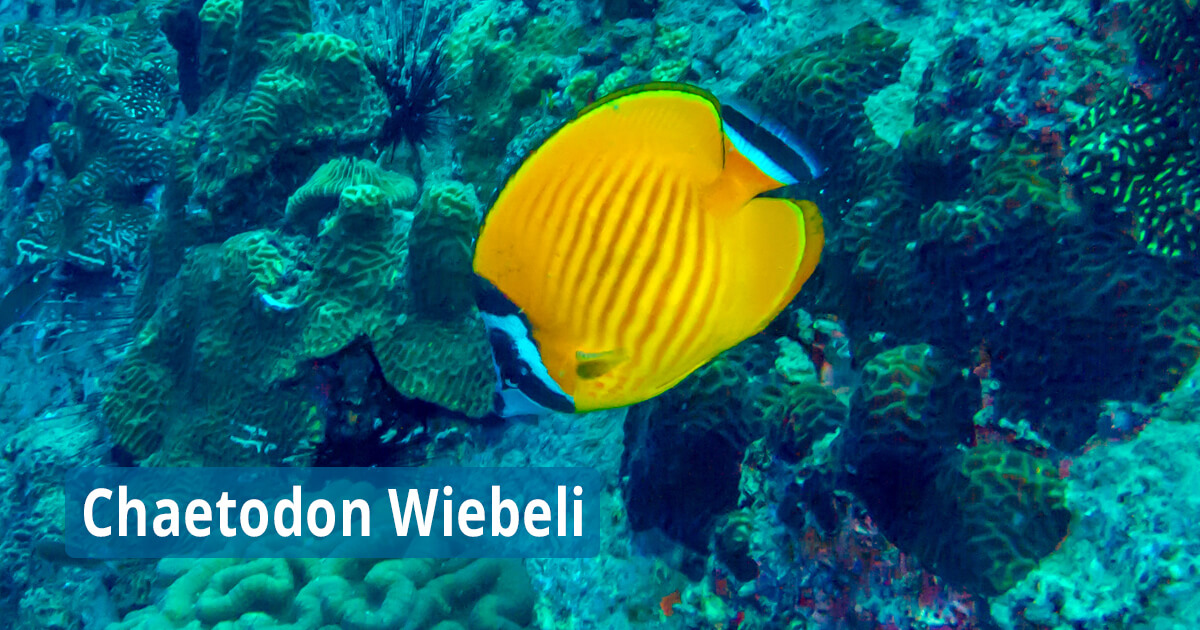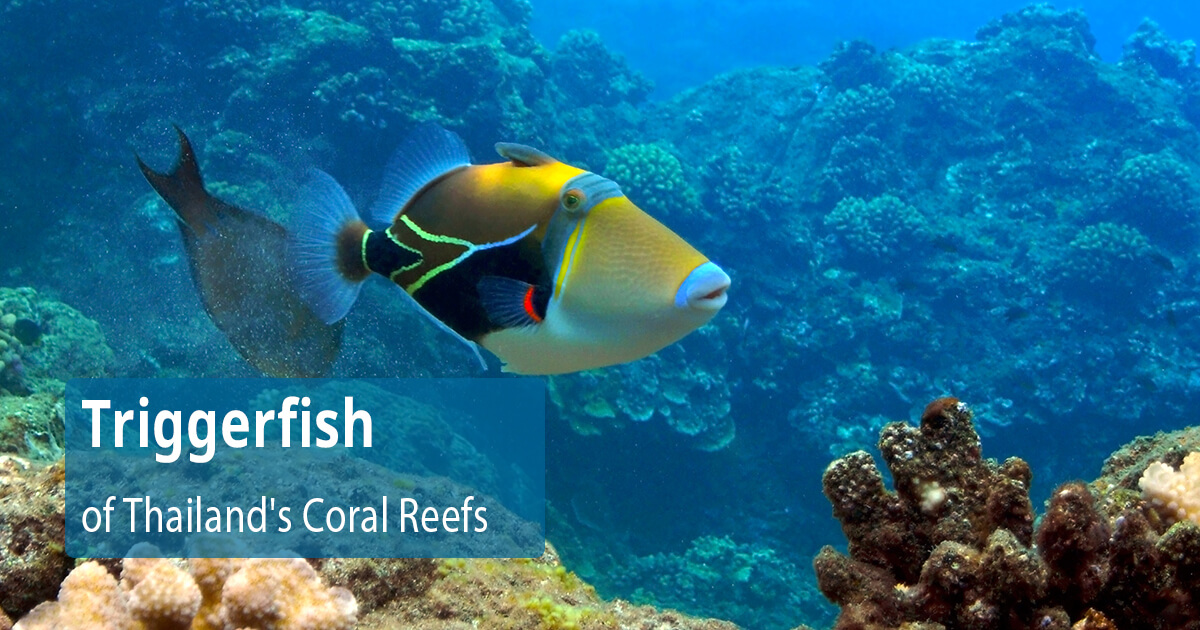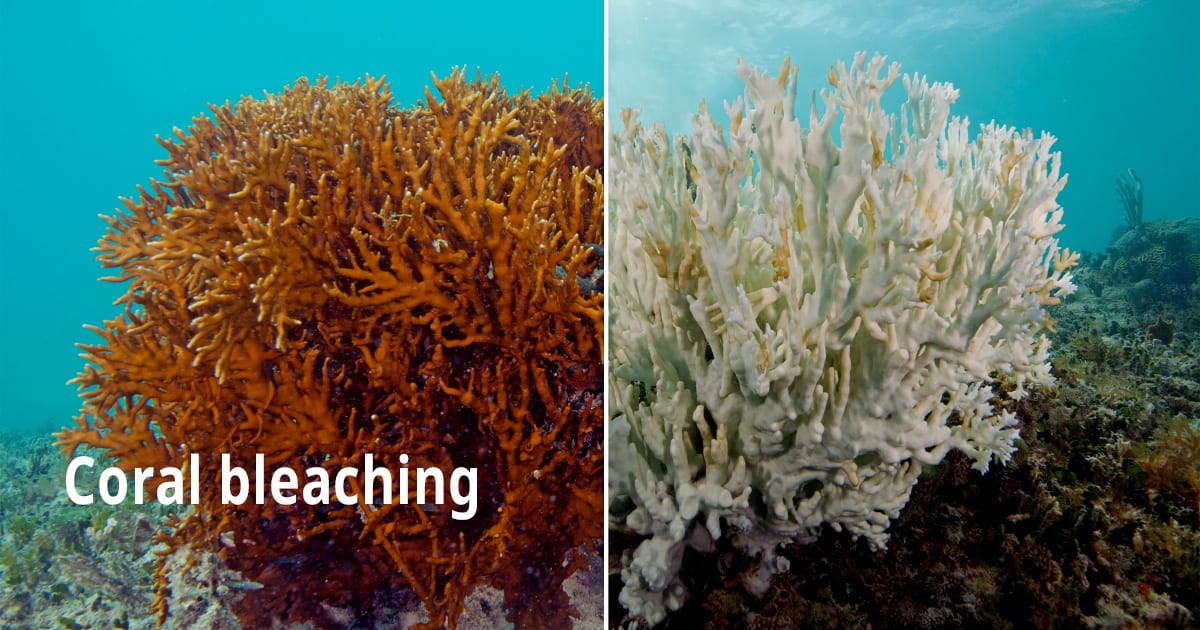Nestled in the Gulf of Thailand, Koh Tao is an island renowned not just for its breathtaking landscapes but also for its vibrant marine life. Among its most enchanting inhabitants are the Green Sea Turtles (Chelonia mydas), a species that adds a layer of magic to Koh Tao’s underwater world. This blog post delves into the life of these majestic creatures, exploring their habitat, behavior, and the conservation efforts that are crucial for their survival.
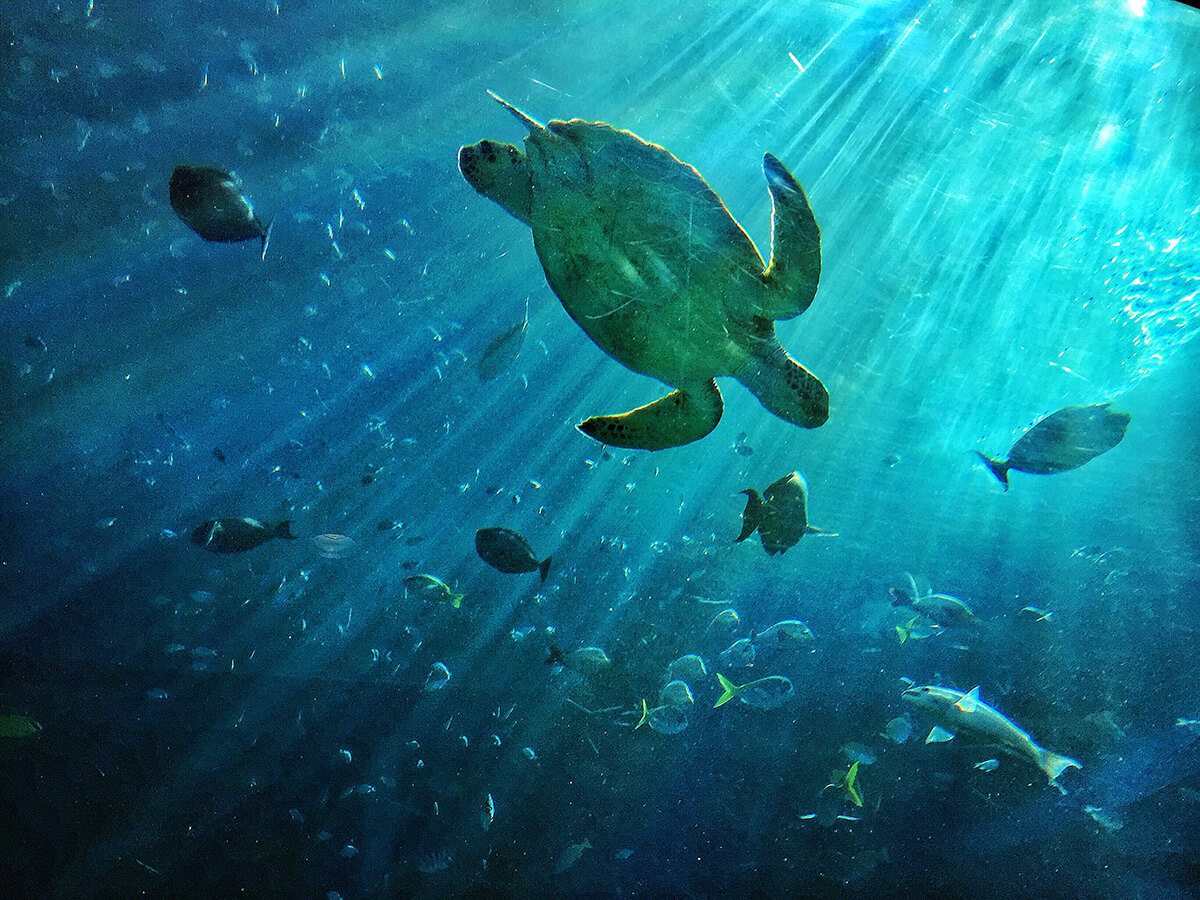
1. The Green Sea Turtle: An Overview
Scientific Classification and Physical Description
The Green Sea Turtle, named for the greenish color of its cartilage and fat, is a large, air-breathing reptile. Distinguished by its broad, smooth carapace and a pair of large, paddle-like flippers, it’s perfectly adapted to life in the ocean.
Habitat and Distribution around Koh Tao
Koh Tao’s warm waters and abundant seagrass beds provide an ideal habitat for these turtles. They are commonly found in the shallow coastal waters around the island, where they feed and mate.
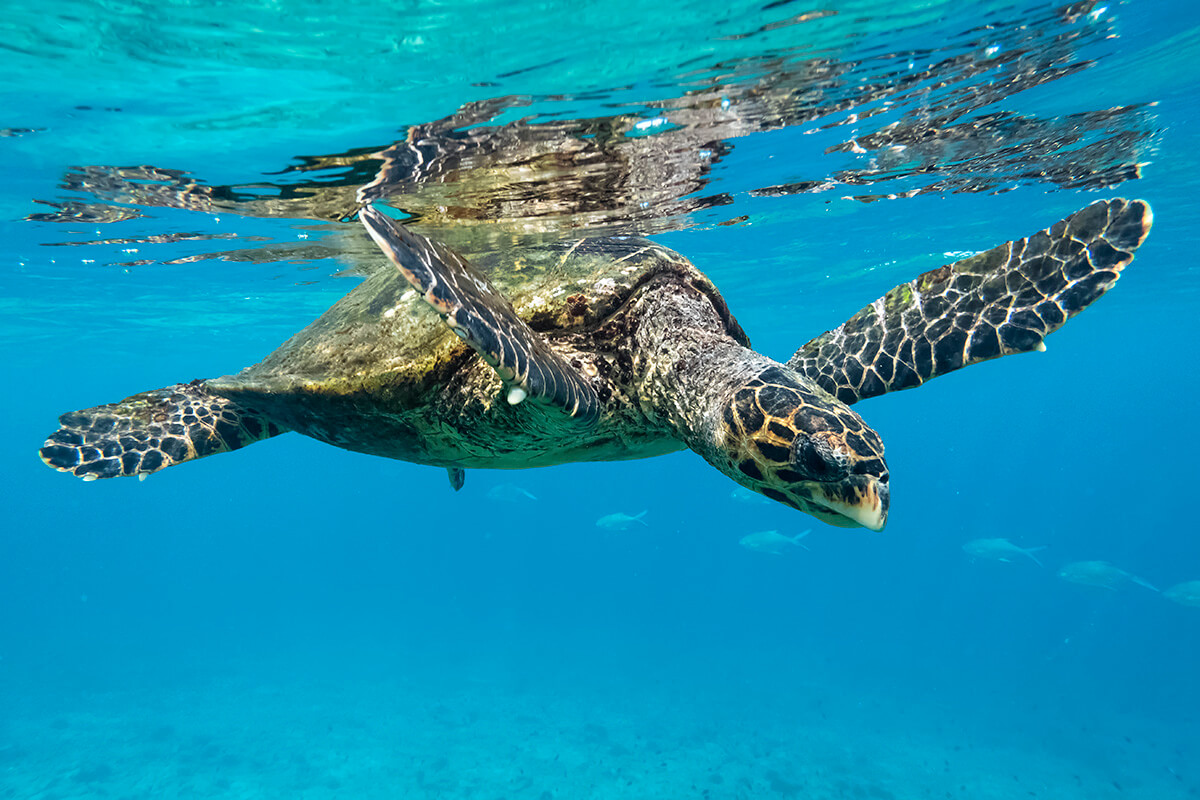
2. A Day in the Life of Koh Tao’s Green Sea Turtles
Feeding Habits
Primarily herbivorous, these turtles graze on the seagrass and algae. Their feeding habits play a crucial role in maintaining the health of Koh Tao’s coral reefs and seagrass beds.
Behavioral Patterns
Green Sea Turtles are known for their long migrations between feeding grounds and nesting sites. However, around Koh Tao, they often exhibit more localized behavior, staying within the region for extended periods.
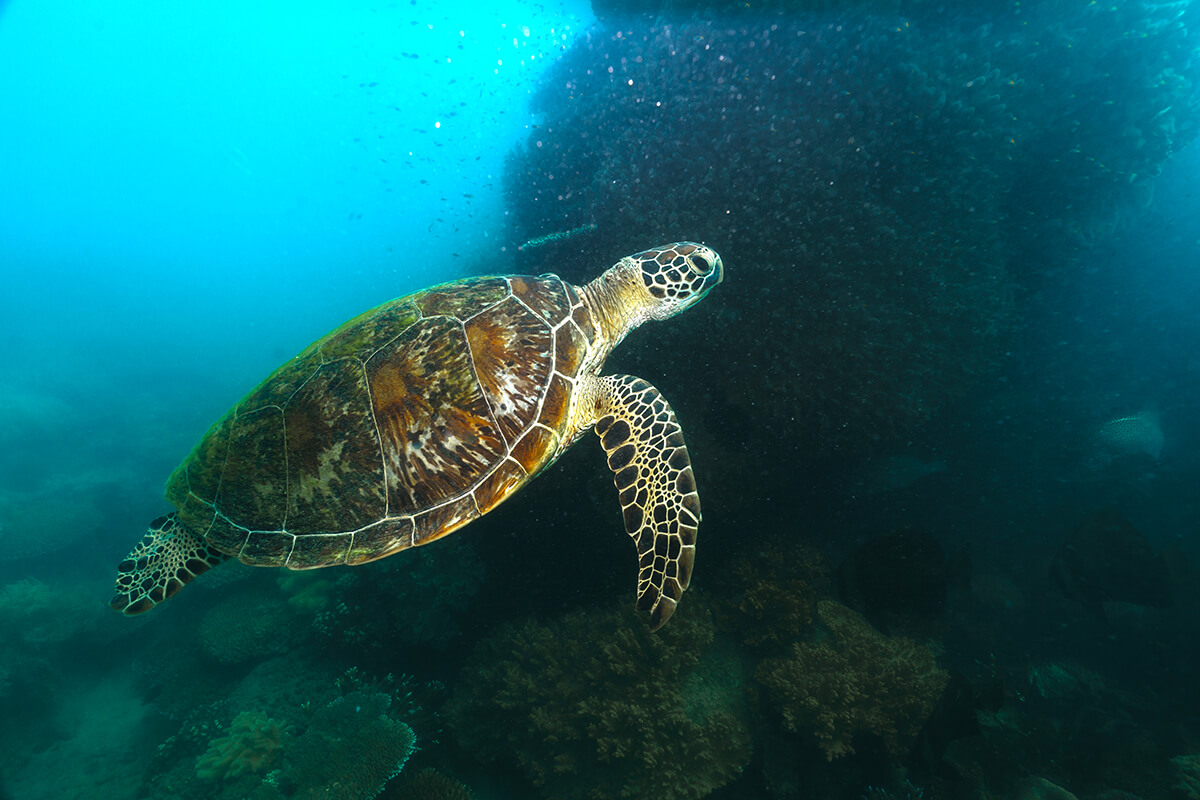
3. The Nesting Process and Hatchling Journey
Breeding and Nesting
Koh Tao’s beaches become nesting grounds typically between July and October. Females laboriously crawl to the beach at night, digging nests in the sand to lay their eggs.
The Hatchlings’ Perilous Journey
After incubation, hatchlings emerge, usually at night, and make their perilous journey to the sea, facing numerous predators. This moment is both delicate and awe-inspiring.
4. Threats to Their Survival
Human Impact
Despite their serene appearance, Green Sea Turtles face threats from habitat destruction, pollution, and accidental capture in fishing gear. Climate change also poses a significant risk, affecting their nesting sites and sex ratios.
Conservation Status
Listed as endangered, these turtles’ survival depends heavily on conservation efforts. Initiatives include protecting nesting sites, regulating fishing practices, and raising public awareness.
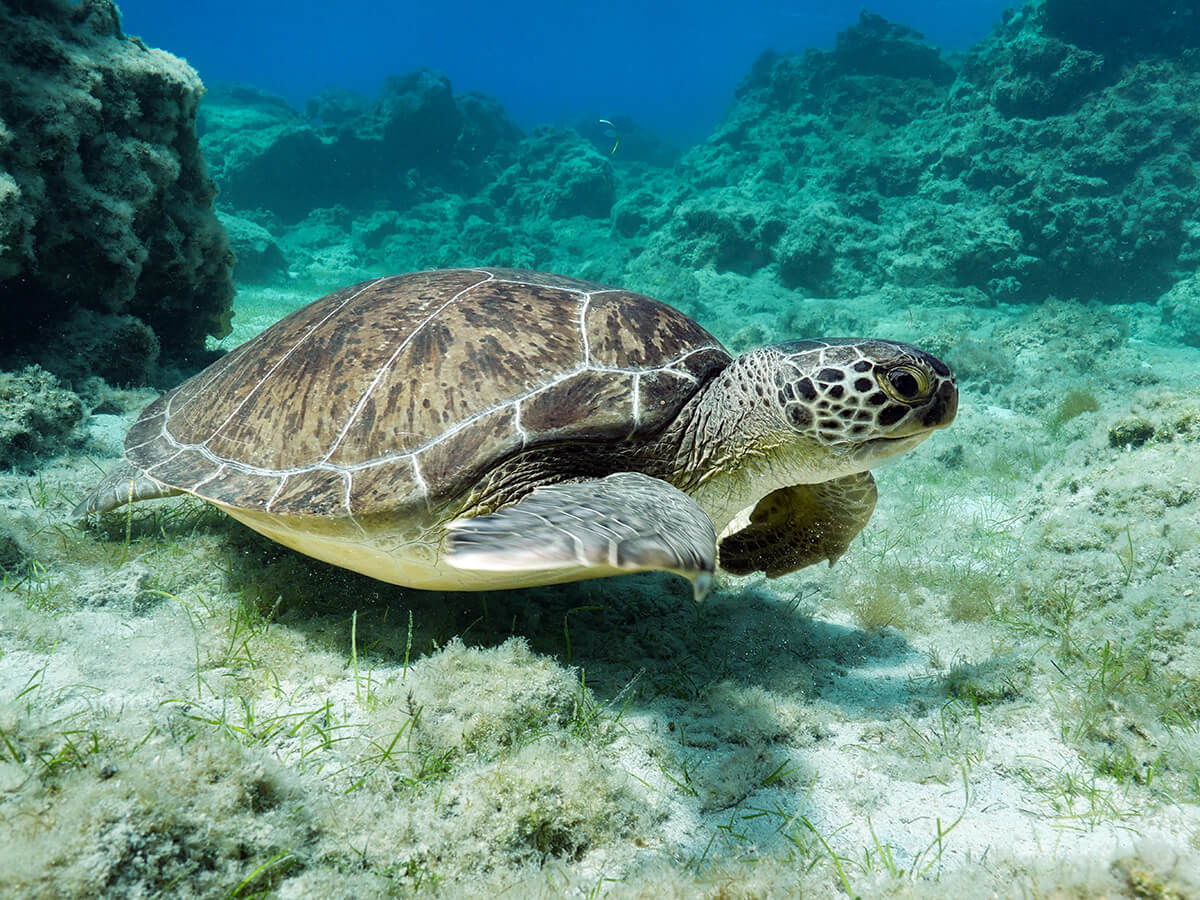
5. Conservation Efforts in Koh Tao
Local and Global Initiatives
Conservation programs in Koh Tao involve local communities, NGOs, and government bodies. These include beach clean-ups, monitoring of nesting sites, and educational programs for locals and tourists.
How You Can Help
Visitors to Koh Tao can contribute by respecting wildlife, participating in conservation activities, and supporting eco-friendly businesses.
Conclusion
The Green Sea Turtles of Koh Tao are more than just a tourist attraction; they are vital to the ecological balance of the region. We can secure the continuation of these amazing species for future generations by learning about and caring for them.




